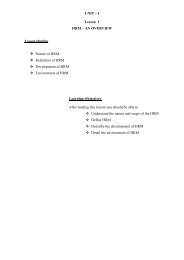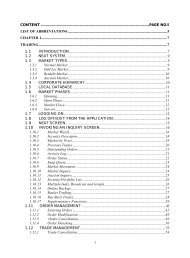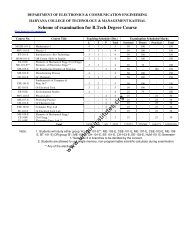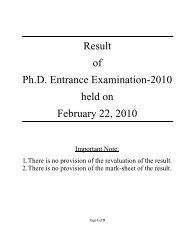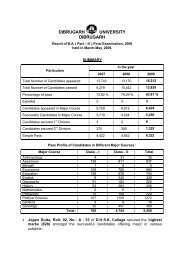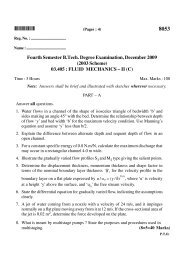Document file:///D|/Export1/www.netlibrary.com/nlreader/nlreader.dll ...
Document file:///D|/Export1/www.netlibrary.com/nlreader/nlreader.dll ...
Document file:///D|/Export1/www.netlibrary.com/nlreader/nlreader.dll ...
You also want an ePaper? Increase the reach of your titles
YUMPU automatically turns print PDFs into web optimized ePapers that Google loves.
<strong>Document</strong><br />
insights, like the insulation of managers from stockholders, turned out to be fragile observations that<br />
ceased to be true almost as soon as he made them. It is, of course, true that corporate managers do not<br />
always act in the interests of stockholders; but to the extent we have made any progress in thinking<br />
about that fact, it is through hard thinking about the principal-agent problem which is simply an<br />
elaboration of the basic economistic emphasis on self-interested behavior.<br />
In other words, Homo economicus is an implausible caricature, but a highly productive one, and no<br />
useful alternative has yet been found.<br />
Page 78<br />
It is also the case that many of those who criticize mainstream economics for its narrowness don't<br />
understand what the field is or can do. At the crudest level, they simply have no idea what economics is<br />
about: Jay Forrester, founder of system dynamics, once replied to an economist who criticized his work<br />
by asserting that "Nordhaus, like all economists, only thinks in terms of one-way causation he doesn't<br />
understand that variables may simultaneously affect each other." At a higher level, the idea of<br />
emergence is lost on most people who have not studied economics; the idea that markets can sometimes<br />
be a decentralized way of achieving efficient out<strong>com</strong>es is seen as a sort of blind prejudice, not the deep<br />
insight about emergent properties that it is. At the most sophisticated level, critics think that perfect<br />
<strong>com</strong>petition and perfect markets are all that economics can do.<br />
I've already tried to describe how it is possible to use the basic self-interest-plus-interaction method of<br />
economics to make sense of seemingly heterodox ideas in development and geography; I'll want to talk<br />
more about the implications of that work shortly. But let me first ask why, despite<br />
<strong>file</strong>:///<strong>D|</strong>/Export2/<strong>www</strong>.<strong>netlibrary</strong>.<strong>com</strong>/<strong>nlreader</strong>/<strong>nlreader</strong>.<strong>dll</strong>@bookid=409&<strong>file</strong>name=page_78.html [4/18/2007 10:30:34 AM]



